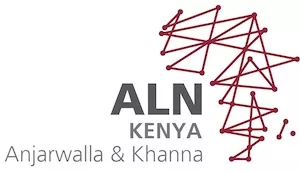Driven by the enactment of the Insolvency Act 2015, Kenya's corporate insolvency and restructuring infrastructure has grown in leaps and bounds. The insolvency landscape in Kenya now includes a progressive approach to corporate financial distress with the introduction of administration as the primary business rescue process for companies undergoing financial hardship.
Administration is a procedure which allows for either the reorganisation of a distressed company or the realisation of its assets with the benefit of a statutory moratorium that prevents creditors from taking enforcement action against the company.1 The process is managed by an administrator who takes control of the company's affairs from its directors to achieve one or more of the three objectives laid down under the Insolvency Act.
With the shift from the perception of insolvency as a death sentence for struggling businesses to the deliberate incorporation of debtor protection mechanisms, we have noted increased interest in the viability of pre-pack administrations/sales (or simply 'pre-packs') in Kenya.
This article discusses the basics of pre-pack administrations and their potential viability in Kenya.
What are Pre-packs?
A pre-pack refers to an arrangement under which the sale of all or part of a company's business or assets is negotiated with a purchaser prior to the appointment of an administrator.2 The administrator then effects the sale immediately on, or shortly after, appointment.
The primary difference between a pre-pack administration and a 'normal' administration is that in a normal administration, the administrator takes over the distressed entity and only begins marketing and negotiating the terms of sale of the business or payment negotiations with creditors and other parties after his appointment. In a pre-pack, the troubled company and its creditors conclude an agreement in advance of the statutory administration procedures.
Kenya's insolvency regime makes no reference to pre-packs. Additionally, to the best of our knowledge, no pre-pack administration has been successfully attempted in Kenya.3
However, given the fact that the insolvency regime in Kenya is substantially a copy of the insolvency regime in the United Kingdom where administrators routinely use pre-packs despite the absence of formal statutory backing, pre-packs may still be considered as a viable rescue mechanism in Kenya.
What are the Pros and Cons of a Pre-pack?
While there is no evidence of a successful pre-pack in Kenya, we may look to the UK where pre-pack sales represent around 29 percent of all administrations.4 Some of the benefits of a pre-pack administration include:
- A pre-pack sale can result in the quick and relatively smooth transfer of a business to a new owner compared to a sale negotiated at length after the insolvent owner goes into administration. This minimises the deterioration of the distressed company's value and reduces administration costs.
- Pre-packs can preserve the business' reputation especially compared to protracted insolvency proceedings and liquidation options.
- Pre-packs can save more jobs than an administration that attempts to continue to trade the business pending a later sale or other type of restructuring.
Conversely, some of the criticisms of pre-packs include the following:
- Lack of transparency given that unsecured creditors are often uninvolved. In a jurisdiction as litigious as Kenya, this is likely to lead to a protracted dispute arising from court delays that may run for several years from the filing of a case to trial.
- The lack of regulation under the Kenyan Insolvency Act or any other any related legislation may translate to a lack of accountability in the conduct of the pre-pack administration.
- The proposed administrator has an inherent conflict of interest given that he may be introduced to the company by its directors in the context of a pre-pack proposal that the directors have begun to formulate. If the relevant insolvency practitioner wants to be appointed as the company's administrator, he has an incentive to agree to implement this pre-pack proposal.
In addition, in the absence of defined statutory rules or guidance on pre-packs in Kenya, insolvency practitioners are likely to be hesitant about implementing such arrangements because of the potential personal liability they may have. The indemnity they typically seek from their appointor will be enhanced to reflect the increased risk if they agree to undertake a pre-pack.
The Place of Pre-packs in Kenya
Pre-packs have the potential to be useful mechanisms in advancing the corporate rescue agenda in Kenya and preserve businesses before a financial crisis precipitates terminal insolvency proceedings. In many instances, pre-packs may also be the best option for the preservation of jobs which is a key factor, especially in the current difficult economic conditions.5
The debate continues among legal and insolvency practitioners on the general viability of pre-pack sales in Kenya where the insolvency regime relies on an elaborate ecosystem of statutory rules and case law which does not favour ambiguity. This means that the lack of defined guidance injects unwelcome uncertainty into any potential use of pre-packs as a rescue mechanism.
The key implication of the uncertainty surrounding pre-packs is the likelihood of litigation by disgruntled parties. Kenya is a litigious jurisdiction and parties regularly seek injunctions to maintain the status quo as their case drags on through the judicial system. For example, a single unsecured creditor or an employee may use the lack of transparency inherent in pre-packs as the justification for potentially protracted litigation.
Due to the backlog of cases and general nature of adversarial litigation in Kenya, it may take up to 3 years to determine a case at the first instance and even longer if an appeal is lodged. We have seen examples of this in the case of Nakumatt, where once the first suit was filed by a creditor, approximately ninety more creditors filed suits in the following weeks. Two and a half years later, Nakumatt is still under administration with no end in sight.
Pre-pack transactions also carry a claw-back risk. This means that the pre-pack sale can be unwound if deemed by court to have been a transaction at undervalue or an extortionate transaction.
Conclusion
Pre-packs are a useful and progressive restructuring tool in any corporate financial distress situation. We are also increasingly involved in transactions where parties seriously consider the merit of using pre-packs administrations that are modelled around the practice in the UK.
However, parties attempting to replicate its usefulness in Kenya would be wise to consider nuances relevant to the Kenyan context before committing to pre-pack arrangements.
Footnotes
1 Administration, Practical Law, available here.
2 Statement of Insolvency Practice 16, (available here).
3 It is difficult to determine whether a transaction is completed as a pre-pack in the absence of official data. Given that pre-packs are followed by an administration process, which is what is officially recorded, it may be difficult to confirm whether a pre-pack preceded the entry into administration.
4 Pre-pack sales in administration report, 8 October 2020 (available here).
5 Pre-pack sales in administration report: here
The content of this article is intended to provide a general guide to the subject matter. Specialist advice should be sought about your specific circumstances.


